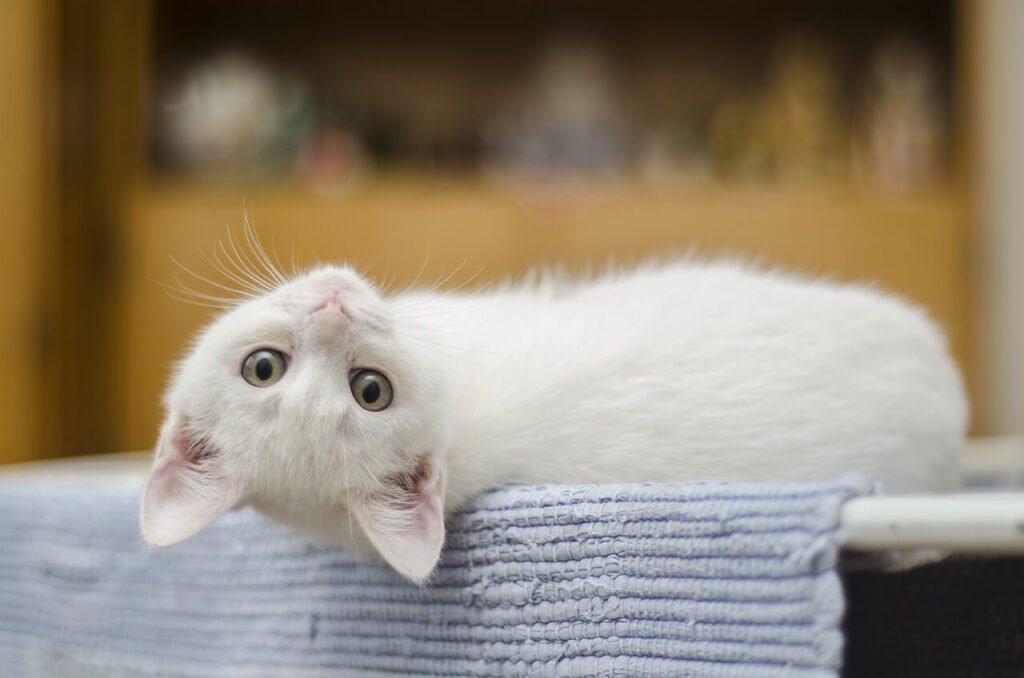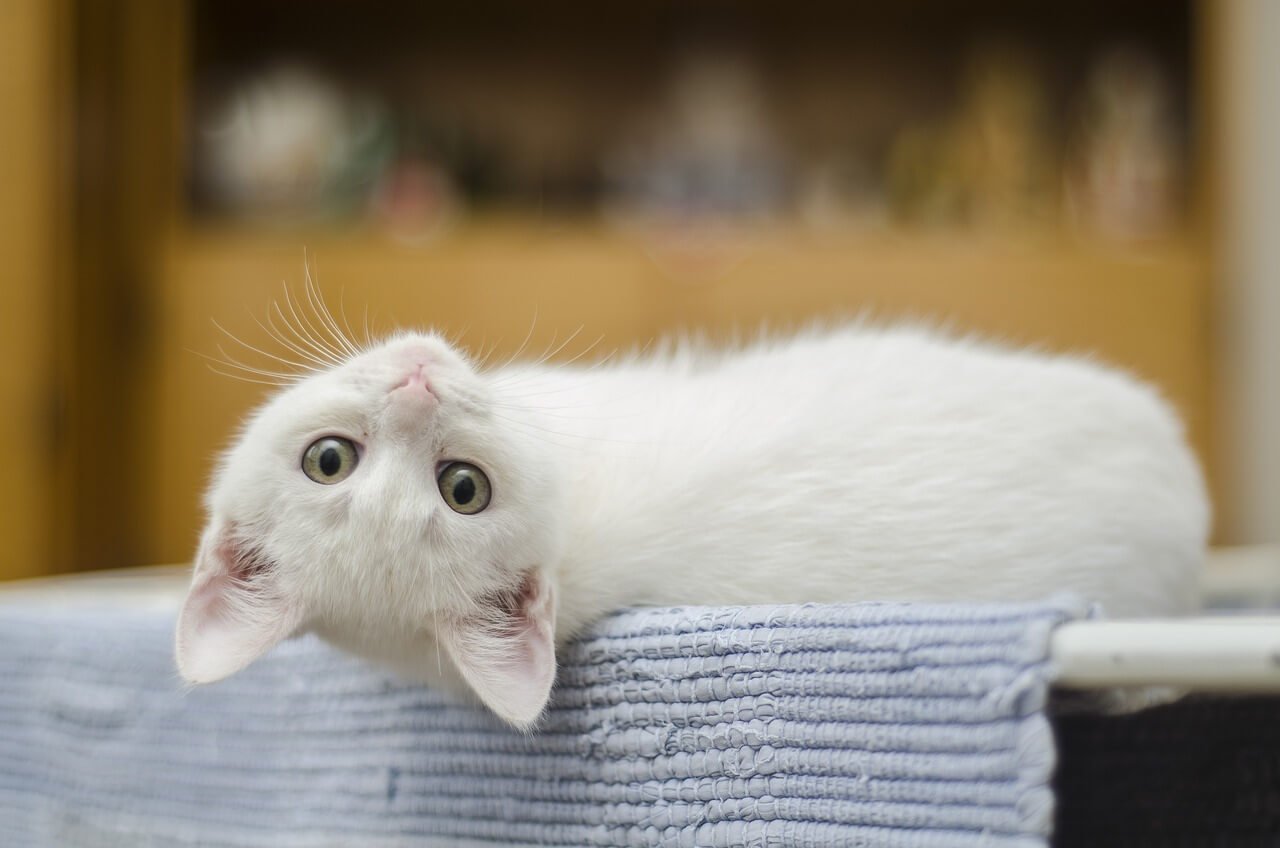Why Does My Cat Smell My Breath?
Cats are curious creatures with a knack for observing and interacting with their humans in fascinating ways. One behavior that often puzzles cat owners is when their feline friend comes close to sniff or even lick their face, seemingly fascinated by their breath. While it might feel strange or amusing, this behavior is rooted in your cat’s natural instincts and social tendencies. Understanding why your cat smells your breath can deepen the bond you share and shed light on their unique way of communicating. Let’s explore the reasons behind this quirky habit and what it means for your relationship with your furry companion.
The Science Behind Cats Smelling Your Breath
When your cat sniffs your breath, they’re engaging in a sensory exploration driven by their keen sense of smell. Cats rely heavily on scent to gather information about their environment, including the people they care about. Here’s what might be motivating this behavior:
Curiosity About Your Diet:
Cats have an extraordinary sense of smell and can detect food particles in your breath. This may pique their interest, especially if you’ve eaten something enticing.Bonding Through Scent Recognition:
Your breath carries your unique scent, which helps your cat identify you as part of their social group. Sniffing reinforces familiarity and trust.Checking for Health Cues:
Changes in your breath, such as unusual odors, could signal health issues. Cats may instinctively investigate these changes out of concern.Exploring Emotional States:
Stress, excitement, or illness can subtly alter your breath. Cats may use this information to gauge your mood and adjust their behavior accordingly.Seeking Comfort and Affection:
Cats often engage in close interactions like sniffing when they feel safe and connected to you. It’s their way of showing affection.
This behavior reflects your cat’s natural curiosity and desire to stay connected with you through scent.
What Your Cat Might Be Trying to Communicate
When your cat smells your breath, they’re not just gathering information—they’re also trying to communicate with you. Understanding their intentions can help you respond appropriately and strengthen your bond.
Affection and Trust:
By coming close enough to smell your breath, your cat is expressing trust and affection. They see you as a source of comfort and security.Hunger or Interest in Food:
If your breath smells like food, your cat might associate it with mealtime and use this as a subtle hint that they’re hungry.Curiosity About Your Routine:
Your breath can reveal clues about where you’ve been or what you’ve done recently, sparking your cat’s investigative nature.Reassurance After Absence:
Cats often sniff their owners’ faces after being apart to confirm their identity and ensure everything is normal.Playful Engagement:
Some cats use this behavior as a playful way to interact, especially if they enjoy physical closeness with their humans.
Your cat’s breath-sniffing habit is a multifaceted form of communication that deepens your connection and highlights their social intelligence.
Check this guide 👉Understanding Why Cats Swish Their Tails: Best 7 Expert Tips
Check this guide 👉Why Cats Love to Lay Down: Best 7 Expert Tips!
Check this guide 👉Why Does My Cat Have a Black Whisker? Best 7 Expert Tips!

Reasons Cats Smell Your Breath | What You Can Do |
|---|---|
Curiosity about your diet | Share safe treats occasionally |
Bonding through scent recognition | Encourage closeness with gentle pets |
Checking for health cues | Monitor your own health regularly |
Exploring emotional states | Stay calm and relaxed around your cat |
Seeking comfort and affection | Respond with positive reinforcement |
How to Respond When Your Cat Smells Your Breath
While this behavior is usually harmless, it’s important to know how to react to ensure both you and your cat feel comfortable. Here are some tips for handling these moments gracefully:
Stay Calm and Relaxed:
Avoid pulling away abruptly, as sudden movements might startle your cat. Instead, remain still and let them finish exploring.Offer Positive Reinforcement:
Reward your cat with praise or a treat after they sniff your breath. This reinforces the behavior as a positive interaction.Redirect Their Attention:
If the behavior feels intrusive, gently redirect your cat’s focus to a toy or activity to satisfy their curiosity elsewhere.Maintain Good Oral Hygiene:
Keeping your breath fresh ensures the experience remains pleasant for both you and your cat. Brush regularly and visit the dentist as needed.Respect Their Boundaries Too:
If your cat seems overly persistent or uncomfortable, give them space and observe their body language for signs of stress.
By responding thoughtfully, you can turn this quirky habit into a meaningful moment of connection.
Other Unusual Ways Cats Use Scent to Connect
Smelling your breath is just one example of how cats use scent to build relationships and understand their world. These behaviors highlight their reliance on olfactory cues for communication and bonding.
Rubbing Against You:
Cats rub their cheeks and bodies against you to mark you with their scent, claiming you as part of their territory.Kneading and Licking:
Kneading and grooming behaviors transfer their scent onto surfaces or people, creating a sense of familiarity and safety.Sniffing New Objects:
Cats investigate new items in their environment by sniffing thoroughly, using their nose to gather detailed information.Headbutting (Bunting):
When a cat headbutts you, they’re depositing pheromones from glands on their forehead, strengthening your bond.Investigating Other Pets:
Cats often sniff other animals’ faces or rear ends to learn about their identity, health, and emotional state.
These behaviors underscore the importanc
Signs Your Cat Feels Close to You
Beyond smelling your breath, cats display many subtle signs of attachment to their humans. Recognizing these behaviors can help you appreciate the depth of your bond.
Purring Around You:
Purring is a sign of contentment and trust, often reserved for those they feel closest to.Following You Around:
If your cat shadows your movements, it’s a clear indication they enjoy your company and seek your attention.Sleeping Near You:
Cats value warmth and security, so choosing to nap beside you shows they feel safe with you.Making Eye Contact Slowly:
A slow blink is a cat’s way of saying “I love you” and signifies deep trust.Bringing You “Gifts”:
Whether it’s a toy or an unfortunate critter, these offerings are tokens of affection and respect.
Understanding these gestures allows you to celebrate the unique ways your cat expresses their love.
How Cats Use Smell to Navigate Their World
A cat’s sense of smell is far more advanced than ours, playing a critical role in their daily lives. Here’s how they rely on scent to navigate their surroundings:
Identifying Territory:
Cats mark their territory with scent glands located on their face, paws, and tail to establish ownership.Recognizing Familiar Scents:
Familiar smells, like yours, provide comfort and reassurance in unfamiliar situations.Detecting Danger:
Sudden or unusual odors alert cats to potential threats, triggering their fight-or-flight response.Finding Hidden Items:
Cats can locate toys or food by following scent trails, showcasing their incredible olfactory abilities.Interpreting Social Signals:
Scents left by other animals or humans help cats interpret emotions, intentions, and relationships.
Their reliance on smell demonstrates the complexity of feline perception and their innate survival instincts.
Fun Facts About Feline Senses
Cats possess extraordinary sensory abilities that make them exceptional companions. Here are some fascinating facts about their senses:
Superior Sense of Smell:
Cats have up to 200 million odor-sensitive cells, compared to only 5 million in humans, making their sense of smell 14 times stronger.Eyes Designed for Low Light:
Cats can see six times better in low light due to a high concentration of rod cells in their retinas.Highly Attuned Hearing:
Cats can hear frequencies up to 64 kHz, allowing them to detect ultrasonic sounds made by rodents.Whiskers as Sensory Tools:
Whiskers act as tactile sensors, helping cats navigate tight spaces and detect vibrations in their environment.Taste Buds Tailored for Meat:
Cats lack taste receptors for sweetness, as their diet is primarily carnivorous.
These fun facts highlight the incredible adaptations that make cats such fascinating and intuitive creatures.
Frequently Asked Questions About Cats Smelling Your Breath
Is it normal for my cat to smell my breath?
Yes, it’s a common and natural behavior driven by curiosity and their strong sense of smell.
Should I be concerned if my cat licks my face too?
Not necessarily—licking is another way cats show affection, though you may want to discourage it if it becomes excessive.
Does my breath affect my cat’s behavior?
Certain scents, especially food-related ones, can influence your cat’s reactions, but most breath odors won’t bother them.
Can cats detect illnesses through breath?
While there’s no definitive evidence, cats may notice unusual changes in your breath that could indicate underlying health issues.
How can I stop my cat from sniffing my breath if it bothers me?
Gently redirect their attention to a toy or activity instead of discouraging the behavior outright, as it’s a sign of affection.
Embracing Your Cat’s Unique Way of Connecting
Cats have a remarkable ability to connect with their humans through scent, touch, and observation. When your cat smells your breath, they’re expressing curiosity, affection, and a desire to understand you better. By embracing this quirky behavior and responding with patience and kindness, you can nurture a deeper bond with your feline companion. Remember, every little interaction—even the odd ones—is a testament to the special relationship you share with your cat. So the next time your cat leans in for a sniff, take it as a compliment—they’re simply saying, “You’re mine, and I love you.”
Can I Give My Cat Midol? Best 7 Expert Tips! – Learn the risks, symptoms, and safe alternatives to keep your cat healthy and avoid toxic reactions.
Can I Give My Dog Midol? Best 7 Expert Tips! – Discover the risks, safe alternatives, and expert advice to keep your dog safe from accidental poisoning.
Maximum Weight for Cats on Planes: Best 7 Expert Tips! – Learn airline policies, tips to stay compliant, and ensure safe travels for your feline friend.
Max Weight for Dogs on Planes: Best 7 Expert Tips! – Discover airline weight limits, safe travel tips, and solutions for flying with your dog stress-free.





